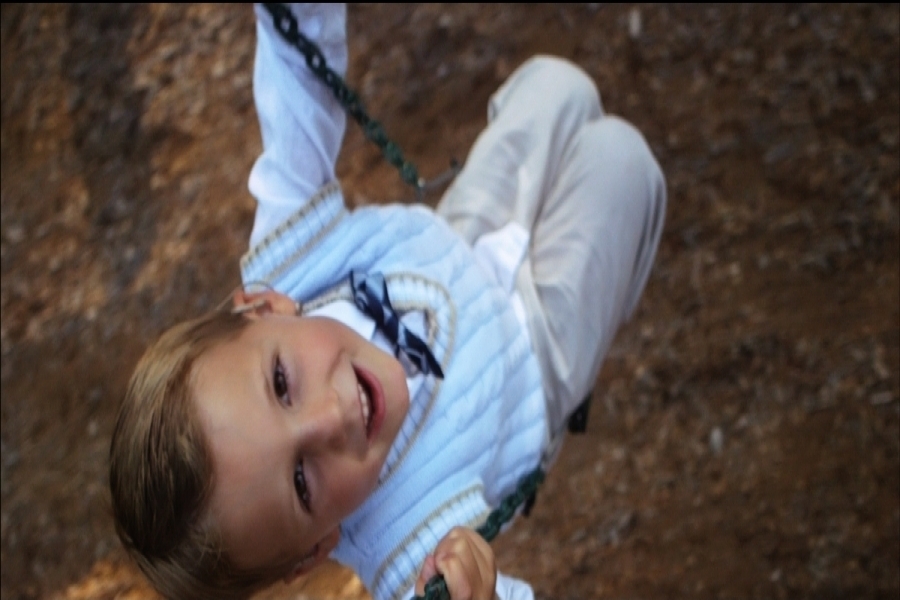Lunafest, the traveling film festival spotlighting the short films of diverse women filmmakers, comes to Philadelphia 2 p.m March 13 at William Penn Charter School.
One of the films being screened is “Raising Ryland,” a documentary short by filmmaker Sarah Feeley that explores the journey of a 6-year-old transgender boy and his loving parents, Jeff and Hillary Whittington, who struggle to accept and affirm him while figuring out how to make his home, school and community life a safer place for him to grow.
Feeley talked to PGN about the film project that she hopes to develop into a full-length documentary.
PGN: What was it about Ryland’s family that made them ideal for this documentary?
SF: In September 2010, there were several stories of LGBTQ youth suicide that came to national attention. In reaction to this heartbreaking news, I set out to make a film about families that were supportively parenting LGBTQ children to try to find inspiring and positive stories that might give a struggling young person hope. Through this process, I met a number of amazing parents. One mother introduced me to another and another and another. That’s how I met Hillary. When working on a film that focuses on parents and children, it is a challenge to find a family who is willing to open up and share their story on film. It takes time to build the trust a film like this requires. It also takes a special kind of courage on the part of the parents to share something as personal as how they parent their child. The Whittingtons have this kind of courage.
PGN: Do you think that people are more or less open to transgender-rights issues when children are involved instead of adults?
SF: That’s a really interesting question. I am not sure I know the answer, and certainly, any answer would have to be as complex and nuanced as the experiences of the transgender community. I can say that transgender people of all ages face discrimination and violence. One of the reasons I made “Raising Ryland” was because I wanted to introduce mainstream audiences to a happy, healthy, vibrant and amazing transgender child and hopefully in the process help them understand what it means to be transgender and see the life-saving difference it makes when LGBTQ youth are supported by their parents. I can also share that the response “Raising Ryland” has been overwhelmingly positive. We have received notes of encouragement, gratitude and appreciation from people around the country and around the world. We’ve been contacted by parents who are desperate to find help in their local areas (and we’ve worked to connect them to those resources).There are families who have written in to share their own personal stories. Many people have let us know that they would like to see more of Ryland’s story because sharing his story has made a difference in their lives (or their children’s lives).
PGN: Has the medical community generally been supportive of the choices Ryland’s parents have made?
SF: Yes. The American Academy of Pediatrics recognizes that there are “many normal variations in gender presentation, gender identification and sexual orientation.” But, to be clear, the Whittingtons’ choice was social, not medical. For transgender children Ryland’s age, a transition is termed a “social transition” and includes steps like changing clothes, haircut and pronouns and, sometimes, changing names. It does not involve any surgical or medical interventions.
PGN: What societal pressures do accepting parents of transgender children face and how does Ryland’s family deal with those issues?
SF: In Western culture, gender is often understood as an absolute binary that comes matched to a person’s anatomy. While this is true for some people, it is not true for all people. Gender is a spectrum. Still, a lot of people confuse gender, sex and sexual orientation. And when these concepts get mixed up, people become uncomfortable and sometimes have very strong reactions. In many ways, parents of transgender children have to face all the same pressures/fears that parents of cisgender children have to face: Will my child be safe? Will my child be happy? Will my child have friends? But, they also have to face pressure, ridicule, discrimination and shame from people who don’t understand that gender is a spectrum. People question their parenting choices and/or parenting effectiveness. The Whittingtons have chosen to deal with those issues by sharing their experiences, educating their peers and demonstrating how to love their children unconditionally. In the process, they hope to make the world a safer, more accepting place for all transgender people.
PGN: How long do you intend to follow Ryland and his family’s story?
SF: For as long as I can.
PGN: What do you hope parents and educators with children in their lives similar to Ryland will take away from seeing this documentary?
SF: I hope that sharing Ryland’s story helps people begin to understand what it means to be transgender and see that transgender children who are loved and supported by their families are more likely to lead happy, healthy lives. More than 50 percent of transgender youth will have had at least one suicide attempt by their 20th birthday. A study by Trans PULSE demonstrates that this number drops by 95 percent when children are supported by their families. The first statistic is so heartbreaking. The second statistic presents such a simple and beautiful solution: love.
“Raising Ryland” will be screened at Lunafest 2 p.m. March 13 at William Penn Charter School, 3000 W. School House Lane. For more information, visit www.lunafest.org or www.raisingryland.com.
Newsletter Sign-up
